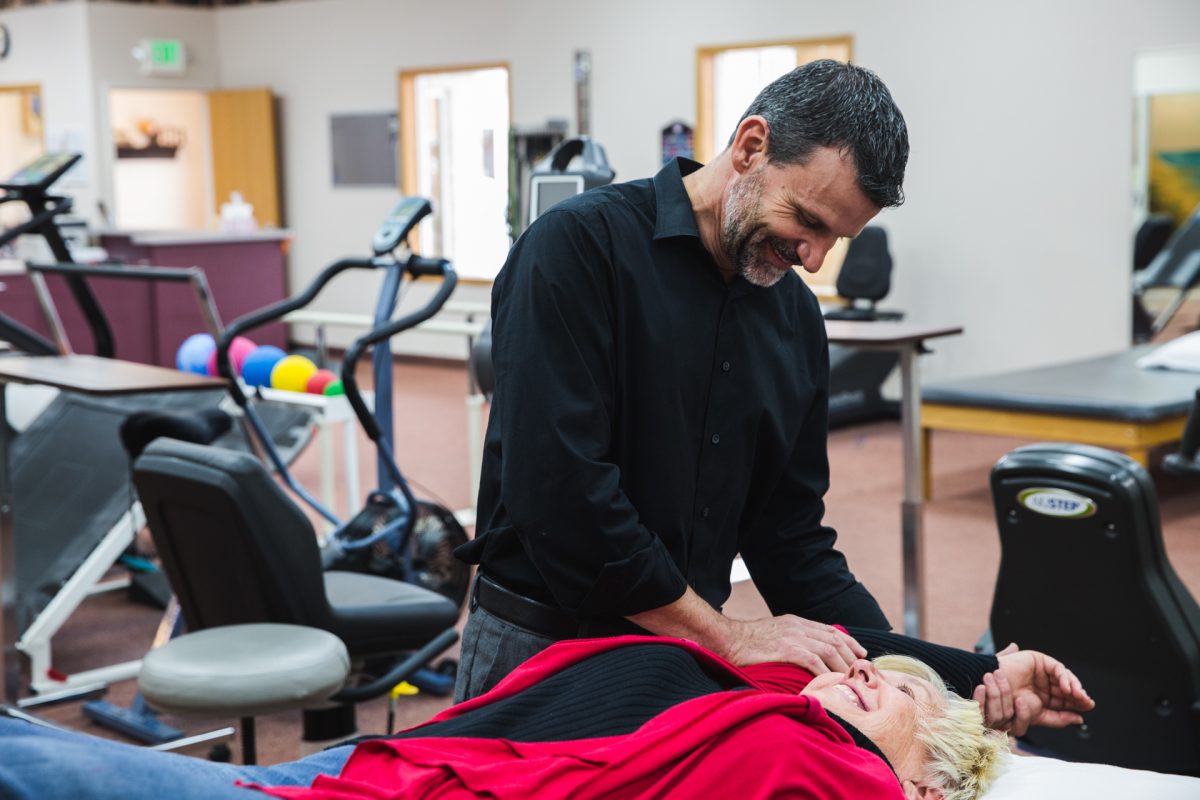Injuries and medical conditions can affect anyone, often without warning, and change lives and lifestyle seemingly overnight. These changes often affect a person’s ability to physically move and function the way they’re used to, which can then take a toll on someone mentally and emotionally as well.
Thankfully, physical therapy exists to help people of all ages get back to living the life they want to! Physical therapy is a method of preventing and managing medical conditions without the use of drugs or potential surgery by working with patients to strengthen and increase their movement and mobility. What are some benefits of physical therapy?
Pain Reduction and Relief
Physical pain can severely alter a person’s quality of life. This pain can be the result of a health condition or an injury. The price of medical procedures and prescription pain killers can add up, not to mention the potential for addiction to the latter. Your physical therapist will instruct and encourage therapeutic exercises, as well as therapeutic manual techniques to relieve pain and restore the function in both muscles and joints, which can also help to reduce pain. These methods can also prevent future or returning pain.
Improved Health
No matter what your age is, physical therapy is beneficial for a number of issues and can help improve a person’s overall health and quality of life. If you’re struggling to walk, stand, or even move, physical therapy may be just the help you need. Physical therapists can fit people for tools to help with mobility (such as canes and crutches) if needed
Prevention
While sometimes surgery is necessary, it can also be expensive and risky. Physical therapy can oftentimes prevent a surgery from needing to take place, depending on what the health issue in question may be. If you do need to end up having a surgery, participating in a physical therapy plan ahead of time will strengthen your overall health and may lead to a quicker recovery time after the surgery takes place. As already mentioned, physical therapy can also help reduce and relieve major pain, thus preventing the possible need for strong prescription painkillers, such as opioids, that can be addictive and cause depression or withdrawal.
Management
If you are one of the reported 23 million people in the United States who suffer from diabetes, then you know that some of the major effects include not being able to control one’s blood sugar, as well as a lack of feeling in the legs and feet. These can be debilitating and even life threatening, but physical therapy can help by designing a personal diabetes management plan that includes exercise and education to help manage both of these issues and preventing future problems.
Other management aspects of physical therapy include age-related issues. Whether you suffer from arthritis or osteoporosis, physical therapy can aid in making the discomfort and pain of these difficult maladies more manageable, without the use of prescription medications.
If you’ve previously suffered, or are currently suffering from heart or lung health concerns, then physical therapy is a great resource to help you manage these issues as well. These are only a few of the many health areas which physical therapy can help manage. Others include women’s health issues, bladder incontinence, fibromyalgia, constipation, and pelvic health.
Recovery
There are many illnesses or injuries that can lead to a need for physical recovery and rehabilitation. These conditions can include anything, from something as common as a sports injury (stress fractures, strains, sprains, and knee injuries, to name a few) to something as severe as a stroke…and physical therapy can help! Physical therapy can also aide in recovery after a major surgery if needed.
Benefits for Children
Physical therapy isn’t just for adults; children can also greatly benefit! If your child has a condition such as a cerebral palsy or other neurological issues, or if they’re recovering from a surgery or need help improving their fine motor skills, physical therapy can help

